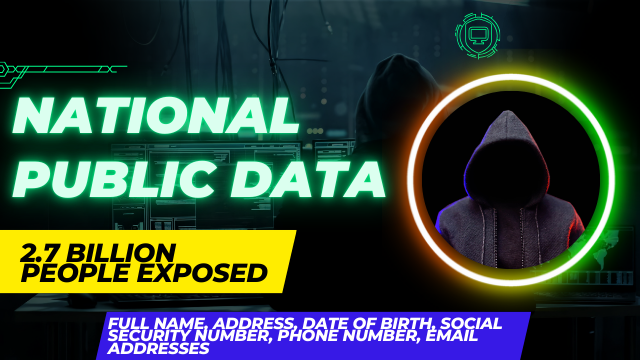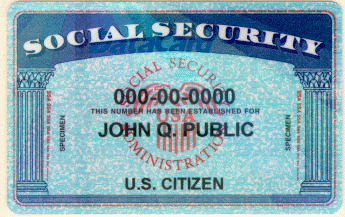In April 2024, a significant data breach impacted billions of personal records after a hacking group gained access to records from the background check service National Public Data (NPD). The breach exposed sensitive information, including Social Security numbers and personal details, leaving millions vulnerable to identity theft and fraud. This incident has prompted many to ask: “What should I do if I’m part of this breach?” and “How do I even know if I’m affected?”
How to Check if Your Social Security Information Has Been Compromised
Unlike many companies, NPD has not notified specific individuals whose data has been compromised. In their public statement, NPD mentioned that they are cooperating with law enforcement and reviewing the affected records. While they haven’t directly contacted people impacted by the breach, they assured the public that they “will try to notify you if there are further significant developments applicable to you.”
However, a cybersecurity firm named Pentester stepped in to help. After the breach, Pentester compiled a free database of the leaked records—redacting sensitive information like Social Security numbers and dates of birth—and developed a search tool for individuals to check if their information was involved. You can visit the search tool to enter your name, state, and year of birth. The system will scan the billions of records leaked in the breach and instantly let you know if your information was compromised.
What to Do if You’re Affected by the Leak
If you discover that your Social Security number was exposed in the NPD breach, it’s crucial to take immediate action to protect your financial identity. Here’s what you can do:
- Freeze Your Credit
The most effective step is to freeze your credit files. A credit freeze prevents potential fraudsters from opening new accounts in your name by restricting access to your credit report. To freeze your credit, you’ll need to create an account with one of the three major consumer credit reporting agencies: Equifax, Experian, or TransUnion. Each agency offers a free service to freeze your credit, and you can freeze your report with all three to provide maximum protection.For more details on freezing your credit, check out the guide by Dr. Tom in his previous article, “Checking Your Credit Report: A Crucial Annual Task.” - Monitor Your Credit Reports
Even after freezing your credit, it’s essential to keep an eye on your credit reports for any signs of unauthorized activity. Use annualcreditreport.com to access free reports from the three major bureaus—Equifax, Experian, and TransUnion. If you notice any accounts or transactions you don’t recognize, report them immediately. - Report Identity Theft
If you suspect that you are a victim of identity theft, report it to the Federal Trade Commission (FTC) at IdentityTheft.gov. The FTC provides a recovery plan and helps guide you through securing your accounts and restoring your identity. - Set Up Fraud Alerts
Consider setting up fraud alerts with the credit reporting agencies. A fraud alert notifies potential creditors to take extra steps to verify your identity before approving any new credit applications.
What to Do If You Suspect Your Personal Information Has Been Compromised in another Data Breach
In today’s digital age, data breaches have become increasingly common, affecting millions of people worldwide. Personal Identifiable Information (PII), such as Social Security numbers, credit card details, and passwords, can be exposed, leaving individuals vulnerable to identity theft and fraud. If you suspect your PII has been compromised in a breach, it’s essential to act quickly to protect your information.
Here are the steps you can take to find out if your data has been exposed and what to do if it has:
How to Find Out If Your Data Has Been Compromised
- Monitor Breach Alerts Many companies will notify affected individuals if their data has been compromised. Be sure to check your email or mail for official notifications following any major breach.
- Use Online Tools Websites like Have I Been Pwned? allow users to check if their email addresses or phone numbers have been exposed in a breach. By entering your email or phone number, the tool will show if it has been found in any known breaches.
- Watch for Unusual Activity Keep an eye on your financial accounts, credit card statements, and any accounts tied to your personal information. Unusual transactions or notifications of account activity could indicate your PII has been compromised.
Be Proactive and Stay Informed
With billions of records compromised in this breach, it’s more important than ever to take steps to protect your personal information. Regularly monitor your financial accounts, change your passwords, and stay vigilant for any signs of suspicious activity. If you’re unsure whether your information has been exposed, use tools like Pentester’s database and other breach monitoring services such as Have I Been Pwned? to stay informed.
By taking these proactive measures, you can minimize the risk of identity theft and safeguard your personal information in the wake of this massive data breach.
Feeling lost in the digital world? Dr. Tom is here to help!
Join Dr. Tom every week in his column, Dr. Tom’s Cyber Bits and Tips, for byte-sized advice on all things cyber and tech. Whether you’re concerned about online safety, curious about the latest cybercrime trends, or simply want to navigate the ever-evolving digital landscape, Dr. Tom has you covered.
From practical cybersecurity tips to insightful breakdowns of current threats, Dr. Tom’s column empowers you to stay informed and protect yourself online. So, dive in and get savvy with the web – with Dr. Tom as your guide!











